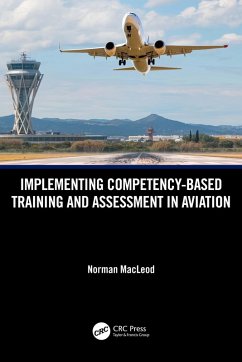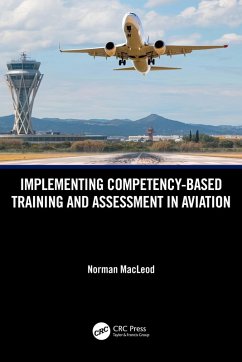
Psychology and Human Performance in Space Programs (eBook, ePUB)
Research at the Frontier
Redaktion: Landon, Lauren Blackwell; Salas, Eduardo; Slack, Kelley J.
Versandkostenfrei!
Sofort per Download lieferbar
53,95 €
inkl. MwSt.
Weitere Ausgaben:

PAYBACK Punkte
27 °P sammeln!
In Psychology and Human Performance in Space Programs: Research at the Frontier, leading space researchers from multiple fields of expertise summarize the recent growth of knowledge, the resulting tools and techniques, and the research still needed to protect humans in space.Making use of cutting-edge research and development related to composing, training, and supporting astronaut crews who will live and work together for future missions to Mars, this book examines the current practices of leaders in the field both at NASA and in academia. Presenting astronaut data alongside data from analogo...
In Psychology and Human Performance in Space Programs: Research at the Frontier, leading space researchers from multiple fields of expertise summarize the recent growth of knowledge, the resulting tools and techniques, and the research still needed to protect humans in space.
Making use of cutting-edge research and development related to composing, training, and supporting astronaut crews who will live and work together for future missions to Mars, this book examines the current practices of leaders in the field both at NASA and in academia. Presenting astronaut data alongside data from analogous extreme environments such as mission simulation habitats, this volume helpfully contrasts and compares to examine the lessons that can be learned from other approaches. Using the context of current International Space Station missions, the book discusses the influence of human factors and physiological health on individual and team job performance and social cohesion. With an overview of the physical and psychological hazards of space, and the challenges posed by conducting space-related applied psychology research, this volume uses the context of a long-duration Mars mission as a lens through which to discuss adaptation and resilience, technical and team training, technological advances related to working and living in space, and human interaction with onboard systems. Additionally, the book includes an essay from retired astronaut Clay Anderson on his experiences in space and thoughts on future missions to the moon and Mars.
This first of two volumes will be of interest to professionals in the field of human factors and psychology at work, as well as academics examining human performance in extreme environments and aerospace.
Making use of cutting-edge research and development related to composing, training, and supporting astronaut crews who will live and work together for future missions to Mars, this book examines the current practices of leaders in the field both at NASA and in academia. Presenting astronaut data alongside data from analogous extreme environments such as mission simulation habitats, this volume helpfully contrasts and compares to examine the lessons that can be learned from other approaches. Using the context of current International Space Station missions, the book discusses the influence of human factors and physiological health on individual and team job performance and social cohesion. With an overview of the physical and psychological hazards of space, and the challenges posed by conducting space-related applied psychology research, this volume uses the context of a long-duration Mars mission as a lens through which to discuss adaptation and resilience, technical and team training, technological advances related to working and living in space, and human interaction with onboard systems. Additionally, the book includes an essay from retired astronaut Clay Anderson on his experiences in space and thoughts on future missions to the moon and Mars.
This first of two volumes will be of interest to professionals in the field of human factors and psychology at work, as well as academics examining human performance in extreme environments and aerospace.
Dieser Download kann aus rechtlichen Gründen nur mit Rechnungsadresse in A, B, BG, CY, CZ, D, DK, EW, E, FIN, F, GR, HR, H, IRL, I, LT, L, LR, M, NL, PL, P, R, S, SLO, SK ausgeliefert werden.













